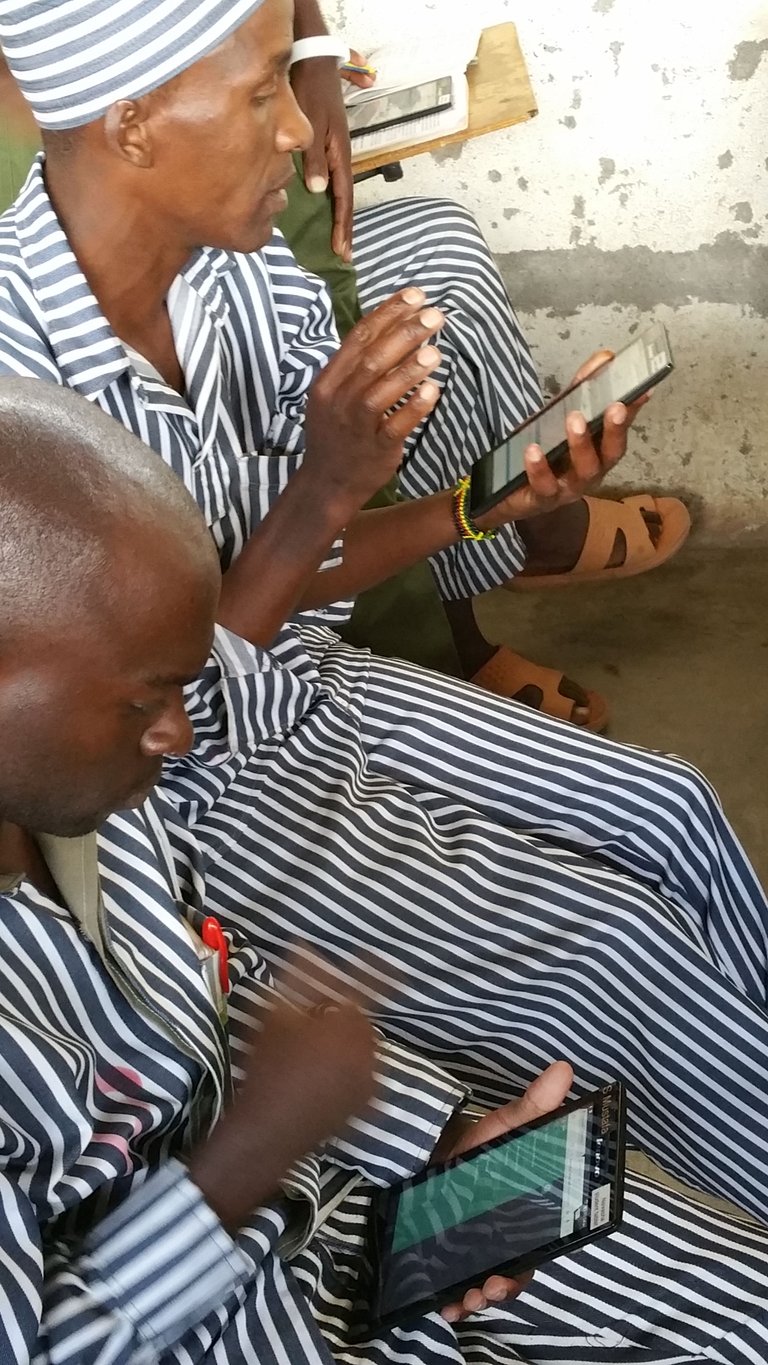Here is some food-for-thought: Can and should inmates earn cryptocurrency to send to their families?
The Education in a Suitcase project brings tablet computers and servers with educational software to low-income regions, particularly Kenya. The software and material is the same as is used in several locations in northern Europe. In an interesting twist, the software hands out rewards in a cryptocurrency, Smileycoins, as students progress.

The picture is taken in the Naivasha Maximum Security prison, where students are using the tutor-web software to practice mathematics. The prison runs a secondary school and the first two year-classes (Form I and Form II) have access to educational material and drills on their tablets, provided by EIAS.
For security reasons the server is not permanently connected to the Internet, but only when disconnected from the tablets. However, there is nothing to stop a user from earning SMLY, redeeming them from the system to the tablet and sending them to another wallet. The transfer officially takes place once the server comes back on-line and the transaction gets written into the blockchain.
In principle the inmates can therefore earn SMLY while studying inside the prison walls. Also in principle, they could transfer these SMLY to their families.
To make this useful the SMLY need to be easily converted to Kenyan shillings, preferably using something generally available such as Safaricom's Mpesa. Currently this needs to go through a cryptocurrency exchange, which involves too many steps for most people.